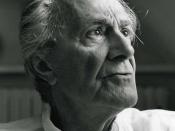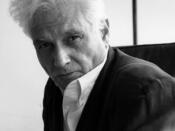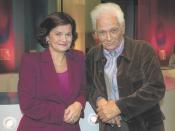Whereas structuralists assume that they can understand the meaning of a text by studying its structural codes, poststructuralists seek to prove that what a text claims to say and what it actually says are two different things.
Prior to Poststructuralism or deconstruction, most theories maintained that the meaning of a text could be found. They held modernist views regarding the world which were later challenged by poststructuralists, deconstruction and postmodernism.
Modernism or enlightenment views: stemming from René Descarte's "I think therefore I am," it sees that reason is the best guide in our lives and that could lead us to a better life.
Modern theories see that objective reality is like a map that can be read clearly.
Postmodernism:
Truth is subjective. Truth is relative. Truth is a creation of minds of humanity.
Postmodern theorists argue that modernism was built on a belief in an external point of reference (God, science, reason, etc), but since there is not only one point of reference, there is not only one truth, and thus there is no ultimate reality.
1960s thinkers that challenged the modernist belief in objective reality:
Jacques Derrida, Michel Foucault, Jean-François Lyotard, and Richard Rorty.
Jacques Derrida:
Brief summary of Saussure's study of language:
Language is a system of rules that govern every aspect of language, up to the smallest units, or the emes.
These rules are the langue which can be found by analyzing the many instances of parole or individual speech utterances.
Words are distinguishable by an aspect of difference, like the difference between the phonemes (tip differs from dip in the phonemes t and d)
Older versions of linguistics saw language to be mimetic, mimicking the outside word.
Saussure asserted that the linguistic sign is made of signifier (word) and signified (concept) whose relation to each...



Good thoughts on Deconstruction
This essay seem to be incomplete. It seems to come in half way. However the final section on desconstruction is very helpful and interesting to furthering an experienced reader's knowledge on the analysis of texts.
1 out of 1 people found this comment useful.